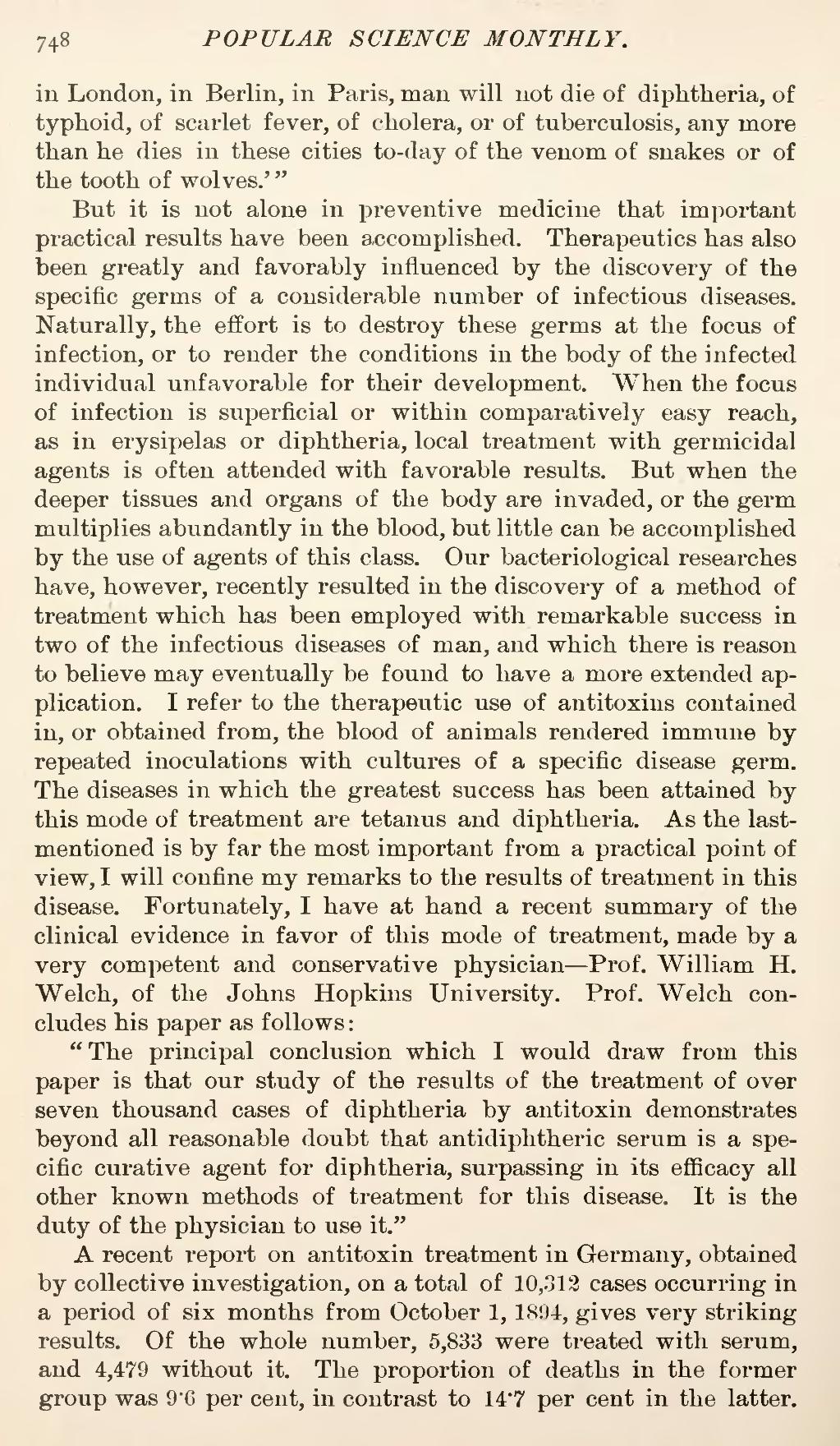in London, in Berlin, in Paris, man will not die of diphtheria, of typhoid, of scarlet fever, of cholera, or of tuberculosis, any more than he dies in these cities to-day of the venom of snakes or of the tooth of wolves.'"
But it is not alone in preventive medicine that important practical results have been accomplished. Therapeutics has also been greatly and favorably influenced by the discovery of the specific germs of a considerable number of infectious diseases. Naturally, the effort is to destroy these germs at the focus of infection, or to render the conditions in the body of the infected individual unfavorable for their development. When the focus of infection is superficial or within comparatively easy reach, as in erysipelas or diphtheria, local treatment with germicidal agents is often attended with favorable results. But when the deeper tissues and organs of the body are invaded, or the germ multiplies abundantly in the blood, but little can be accomplished by the use of agents of this class. Our bacteriological researches have, however, recently resulted in the discovery of a method of treatment which has been employed with remarkable success in two of the infectious diseases of man, and which there is reason to believe may eventually be found to have a more extended application. I refer to the therapeutic use of antitoxins contained in, or obtained from, the blood of animals rendered immune by repeated inoculations with cultures of a specific disease germ. The diseases in which the greatest success has been attained by this mode of treatment are tetanus and diphtheria. As the last-mentioned is by far the most important from a practical point of view, I will confine my remarks to the results of treatment in this disease. Fortunately, I have at hand a recent summary of the clinical evidence in favor of this mode of treatment, made by a very competent and conservative physician—Prof. William H. Welch, of the Johns Hopkins University. Prof. Welch concludes his paper as follows:
"The principal conclusion which I would draw from this paper is that our study of the results of the treatment of over seven thousand cases of diphtheria by antitoxin demonstrates beyond all reasonable doubt that antidiphtheric serum is a specific curative agent for diphtheria, surpassing in its efficacy all other known methods of treatment for this disease. It is the duty of the physician to use it."
A recent report on antitoxin treatment in Germany, obtained by collective investigation, on a total of 10,312 cases occurring in a period of six months from October 1, 1894, gives very striking results. Of the whole number, 5,833 were treated with serum, and 4,479 without it. The proportion of deaths in the former group was 9·6 per cent, in contrast to 14·7 per cent in the latter.
